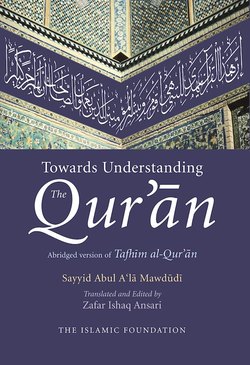Читать книгу Towards Understanding the Qur'an - Sayyid Abul A'la Mawdudi - Страница 35
На сайте Литреса книга снята с продажи.
ОглавлениеTowards Understanding the Qur’an
Whenever a subject is repeated, it should therefore be expressed in different phraseology, in new forms and with stylistic variations so as to ensure that the ideas and beliefs being put over find their way into the hearts of the people.
At the same time, it was essential that the fundamental beliefs and principles on which the movement was based should always be kept fresh in people’s minds; a necessity which dictated that they should be repeated continually through all stages of the movement. For this reason, certain basic Islamic concepts about the unity of God and His Attributes, about the Hereafter, about man’s accountability and about reward and punishment, about prophethood and belief in the revealed scriptures, about basic moral attributes such as piety, patience, trust in God and so on, recur throughout the Qur’an. If these ideas had lost their hold on the hearts and minds of people, the Islamic movement could not have moved forward in its true spirit.
If we reflect on this, it also becomes evident why the Prophet (peace be on him) did not arrange the Qur’an in the sequence in which it was revealed. As we have noted, the context in which the Qur’an was revealed in the course of twenty-three years was the mission and movement of the Prophet; the revelations correspond with the various stages of this mission and movement. Now, it is evident that when the Prophet’s mission was completed, the chronological sequence of the various parts of the Qur’an – revealed in accordance with the growth of the Prophet’s mission – could in no way be suitable to the changed situation. What was now required was a different sequence in tune with the changed context resulting from the completion of the mission.
Initially, the Prophet’s message was addressed to people totally ignorant of Islam. Their instruction had to start with the most elementary things. After the mission had reached its successful completion, the Qur’an acquired a compelling relevance for those who had decided to believe in the Prophet. By virtue of that belief they had become a new religious community – the Muslim ummah. Not only that, they had been made responsible for carrying on the Prophet’s mission, which he had bequeathed to them, in a perfected
xxxiv
